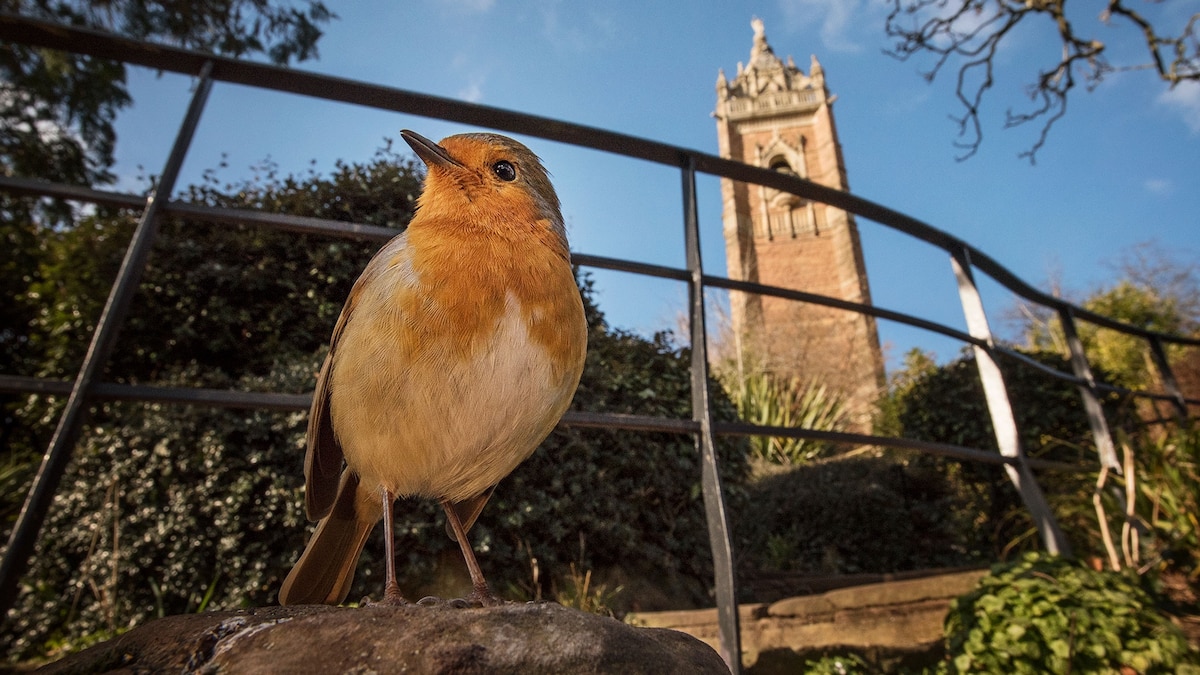Now Reading: The surprisingly relatable reason why some birds get cranky
-
01
The surprisingly relatable reason why some birds get cranky
The surprisingly relatable reason why some birds get cranky

Trafficked roads, loud noises, suffocating smog. For some people, living in the city can be stressful and unnerving. But a growing body of research shows some city birds can be more aggressive than their rural counterparts, suggesting they too feel the pressures of city life.
In a study published in April in the journal Animal Behavior, researchers showed that Galápagos yellow warblers that live near trafficked roads in the Ecuadorian archipelago respond to intruders more aggressively than those living farther away from traffic.
They’re not the only bird species affected by city life. Numerous studies have investigated the phenomenon of angry urban birds—finding that species such as great tits, European robins, song sparrows, and dark-eyed juncos show more aggression toward each other when they live near urbanized sites.
While it’s clear that “in some species of birds, urban populations are more aggressive than rural populations,” there are many different theories for why this happens, says Jeremy Hyman, a professor and department chair of biology at Western Carolina University.

A song sparrow sings on a branch in California. Research suggests song sparrows may display more aggression in cities because they feel more territorial.
Photograph By Marie Read/Nature Picture Library
Street fighting birds
In the last decades, the Galápagos archipelago has seen a drastic increase in the human population, with permanent residents today increasing by six percent each year. An increase that requires more infrastructure to house more people, and more cars to move them around. This makes it a perfect ‘laboratory’ to study how birds respond to new, busy conditions, according to study authors.
The researchers selected 38 warbler territories on two islands of the archipelago: Santa Cruz Island, and Floreana Island; both crossed by a main road used by cars. The warblers were located either near the road or at least 300 feet away.
In each territory, they played recordings of traffic noise and warblers singing, which simulated an intrusion.
“Each bird was tested once with just the warbler speaker being active, and once with the warbler speaker plus the [car] noise speaker active,” says Çağlar Akçay, a behavioral ecologist at Anglia Ruskin University in Cambridge and study author.
When exposed to the sounds of encroaching birds and car noise playing in the background, the warblers living close to the road responded more aggressively than when there was no noise playing. They also responded more aggressively to noise compared to their ‘rural’ counterparts—getting closer to the speakers and sometimes even attacking them.
Mike Webster, an ornithologist at the Cornell Lab of Ornithology who was not involved in the research, says the study is “pretty convincing” and offers a clear look at how a single environmental change can influence behavior.
“[It] really kind of helps us focus in on what the causes of the differences in behavior might be,” he says.
Why so angry?
Generally, animals that live in cities tend to be bolder and more aggressive—both characteristics that enable them to survive in such complex habitat. “Individuals that can’t deal with constant disturbance, such as noise, people, cars, etc. would be unlikely to thrive in an urban habitat,” says Hyman.
You May Also Like
Some birds may become more aggressive because cities are rich in food sources—and so there’s strong competition to establish a foothold. “Only the most aggressive males can manage to hold a territory in this place where lots and lots of birds would like to have a territory,” says Hyman.
But food scarcity may also make some urban species more aggressive, and so “birds have to fight an awful lot in order to maintain a large enough territory to get the resources that they need.”
High levels of stress caused by noise and other factors might also play a role in making birds more aggressive, notes Hyman.
But does being more aggressive enhance your chances of survival?
In some cases, aggression seems to be “a worthwhile cost”, says Sarah Foltz, a behavioral ecologist at Radford University. One study that looked at song sparrows living in southwest Virginia showed that aggression didn’t impact how much bird parents invested in their offspring. Female birds even spent as much and sometimes more time at the nest than their less aggressive rural counterparts.
Overall, the benefits of being more aggressive seem to depend on the kind of habitat the birds are in.
For some species, like the song sparrow, some urban areas offer suitable habitats with more food and fewer predators. They might become more aggressive to defend it, and ensure a good habitat were to raise their offspring—and so have better chance of survival.
Another “big unanswered question,” says Hyman, is whether birds learn to be aggressive during their lifetime, or if birds born in urban populations have some measure of aggression encoded in their genes. “There’s little bits of evidence on both sides,” he says.
But what scientists do know is that some birds can be highly adaptable.
“Aggression definitely has a genetic component to it,” says Foltz. “But also, we know that when we change environmental factors, birds change their aggression”
Overall, Foltz says scientists are still trying to understand just how much urban density different species can tolerate and which characteristics of an urban environment influence aggressiveness the most.
“We’ve got all these little pieces,” she says, “But it’s still coming together to make a bigger picture, so it’s sort of an unfinished puzzle.”





















